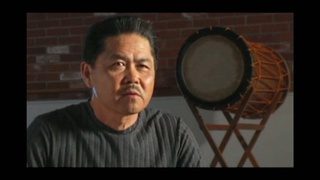Interviews
Number 1 Hit "Sushi"
[Play music]
We recorded at radio station, and with this portable [Ampax?] recorder, tape recorder, two-track, so if you made a mistake you had to start all over from the beginning. So we recorded that album in one day, called the Cool Touch, and I recorded all Japanese songs, mostly, except one or two.
And this song that [Hida?] wrote, called [Sazanaka no michi?], I called it Sushi. And that's the one that hit, that thing became number 1 in Hawaii in two weeks and this song that [Hida?] wrote, called [Sazanaka no michi?], I called it Sushi. And that's the one that hit, that thing became number 1 in Hawaii in two weeks.
Dick Clark. He, and Lloyd Thaxton, they both played my record, yeah? That record. And the kids were dancing to it. And I wasn't even working, I was just watching the TV, you know? I didn't even have a job. And to work in Hawaii, I couldn't play that song, you see? Because the managers of all the hotels, strictly, you know, demanded that you play only Hawaiian music, and no other kind of music. So I was playing at the Moana Hotel, with the trio, you know, during the Sunset hour, that was my first job on Waikiki. Lloyd Thaxton came to the stage, he said, "You're Ota-san?" I said, "yeah." He say, "You wanna play 'Sushi' for me?" I looked at him, I knew who he was or anything, I say "I cannot play that song." Hahaha!...
[Play music]
Something like that, I don't remember. Hahaha!
Date: August 2012
Location: Hawai`i, US
Interviewer: John Esaki
Contributed by: Watase Media Arts Center, Japanese American National Museum







